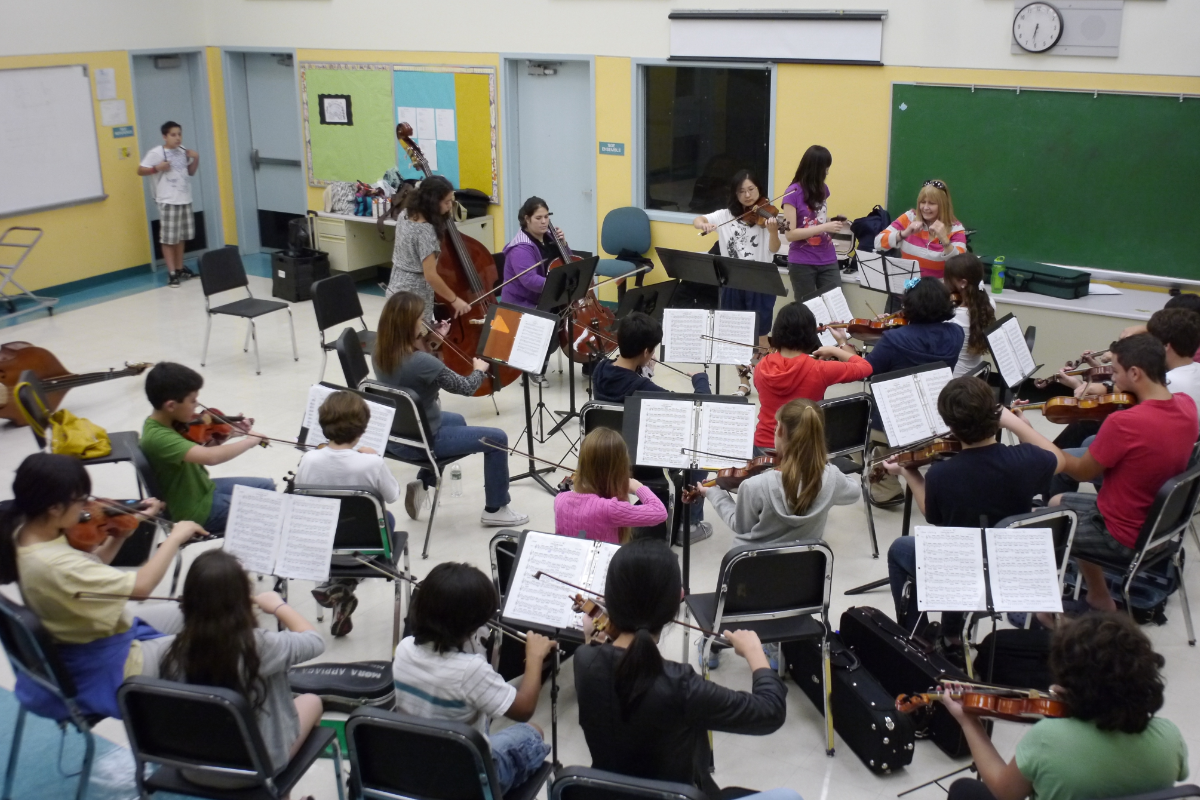
Government urged to establish national music education service
Political thinktank says England needs a national music service akin to Wales' to ensure every pupil has access to high-quality music education.
The UK Government should establish a national music service in England to ensure all pupils have equitable access to high quality music education, according to a new report.
The report, by left-wing political think tank the Fabian Society, responds to the UK Government’s recently published National Plan for Music Education (NPME).
It says a National Music Education Service (NMES) similar to plans initiated by the Welsh Labour Government earlier this year would “offer national leadership and consistency in bringing together the music sector and schools without stifling local identity, innovation and knowledge”.
READ MORE:
The report follows research from the music sector which detailed the decline in music education provision in England.
It suggests a NMES could consist of a national coordinating body, such as Arts Council England, and a network of local organisations that support existing Music Education Hubs, which the report says are “struggling to deliver”.
Among the key functions of the proposed NMSE is guaranteeing increased and multi-year funding from central government. Budgets for Music Education Hubs have been cut by 17% in real terms since 2011 and the recent NPME stated funding will be frozen at £79m until 2025.
It also says a NMES should “commit to a core mission of ending fragmentation and inequality in the provision of music education,” prioritise engaging under-represented groups in music education, and create a music education workforce guarantee to ensure equal provision of music opportunities.
Writing on Twitter, the Fabian Society said Labour in Westminster must “learn from Labour power in Wales”.
Labour MP for Cardiff West Kevin Brennan, who is Chair of the All-Party Parliamentary Group on Music, told ArtsProfessional the Fabian Society’s report highlights “the inadequate provision for music education in England after 12 years of downgrading and fragmenting of services in publicly funded schools under the Conservatives.”
“The Welsh Labour Government has shown the way as the report acknowledges with a proper National Plan for Music Education.”
“No school should be able to be rated outstanding on inspection without an outstanding creative offer in music and other arts subjects.”
Music Education in schools
The report also recommends a range of measures for the UK Government to implement in schools.
Among the proposals are the introduction of an arts education premium. The Fabian Society has called on the government to reinstate its once promised £270m arts premium, and extend the funding to primary schools, special schools and other education settings.
The report says the NPME’s primary goal of embedding music in the national curriculum is “largely irrelevant for secondary school pupils”, with the rise of academy schools which are not subject to the curriculum. It suggests government should require high-quality and accessible music education to be delivered in every school in receipt of public funding.
Other recommendations include upgrading music teacher training and recruitment for classroom teachers – the report states only 72% of the required number of music teachers were recruited into secondary schools in 2021/22 – and supporting schools to engage professional musicians.
ArtsProfessional contacted the office of Shadow Education Secretary Bridget Phillipson, to ask if the Labour Party would be promoting the recommendations of the Fabian Society’s report but no response has yet been recieved.
Sector support
The report has been endorsed by the Musicians' Union, with the body’s National Organiser for Education Chris Walters saying it offers an alternative solution to areas of the government’s NPME.
“While we welcomed many aspects of the Government’s updated NPME, we also expressed our concerns that the plan is non-statutory and under-funded, and that it ignores the poor terms and conditions faced by many visiting teachers.
“We are pleased that the report aligns with several key issues of concern for the MU: fair and equitable conditions for the workforce, how we can fix the current postcode lottery of provision, and how we can ensure that underrepresented groups are better served and represented in music education.
“We look forward to discussing the report’s ideas with MU members and policy makers.”
Join the Discussion
You must be logged in to post a comment.